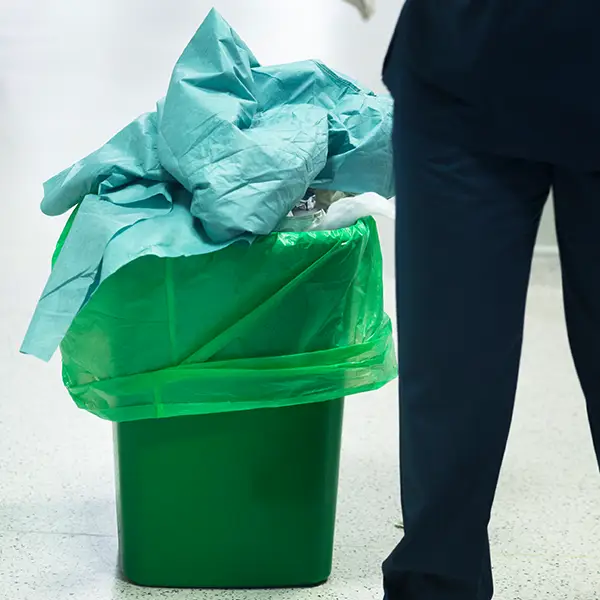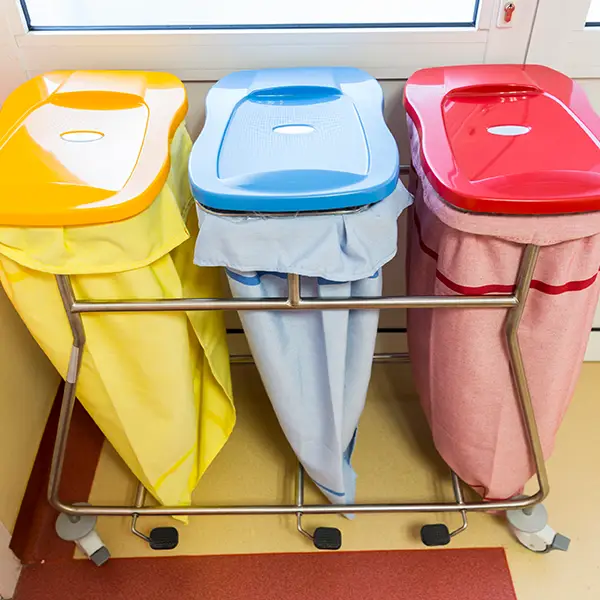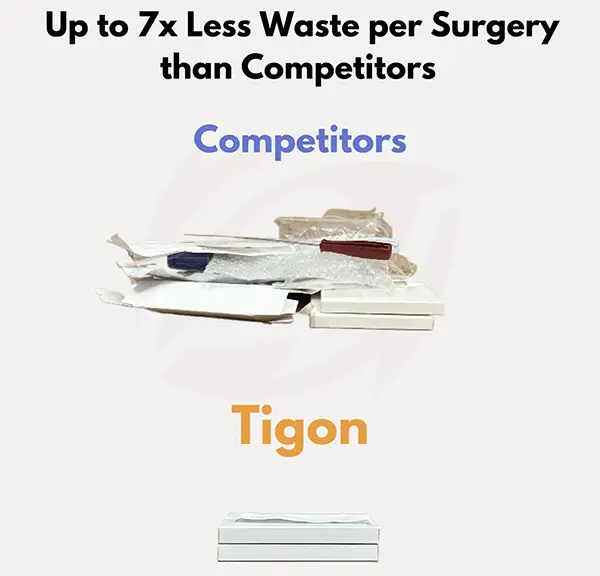What actions can surgeons & nurses take to support sustainable healthcare?
Patient health is at the center of a surgeon's attention. However, as the effects of climate change increasingly hurt our communities that focus must now include the environmental consequences of patient-care decisions. Surgeons and nurses have the ability to lessen the effects of climate change by reducing OR waste and advocating for improved reuse and recycling of single-use medical supplies.


Reduce OR waste
Recent studies indicate that US healthcare annually produces more than 4 million tons of solid waste. Single-use plastics are estimated to comprise 25% of that waste, or 1 million tons.
Surgical suites and operating rooms have disproportionally high environmental impact – studies attribute as much as 30% of all hospital solid waste to ORs. This is due, in part, to the use of single-use, throw away products such as surgical instruments, gowns, gloves and packaging material.
Note to sports medicine surgeons:
While reuse of orthopedic surgical implements is typical for total joint surgeries, it is unique for sports medicine because the vast majority of sports surgeries are done with single-use, disposable instruments.
There is a need to reduce the consequence of this waste on our environment. Limiting the use of single-use surgical instruments can bring about immediate reductions to sports surgery OR waste.
Improve waste identification, recycling and disposal
Most OR waste is general waste. Unfortunately, up to 90% of that waste is wrongly classified as hazardous, regulated medical waste (RMW). This happens due to improper identification and mixing with RMW which then requires unnecessary, expensive incineration. Better identification and separation of OR waste will facilitate environmentally responsible disposal and reduce the volume of waste that must be incinerated.

Tigon Medical encourages you to consider the following actionable ideas to improve operating room sustainability:
Work to build sustainability into the OR
Specify and purchase environmentally friendly, sustainable products such as reusable Tigon GreenRepair® instruments – limit surgical waste and reduce carbon emissions associated with manufacture and transport of single-use items
Review physician preference cards with surgeons and nurses and look for a discrepancy between the supplies requested and those actually needed – eliminate what is not used
Careful selection of instruments and supplies helps reduce the amount of opened and unused items discarded after a procedure
Work with suppliers to rethink packaging and reduce waste – Tigon GreenRepair® products use up to 7 times less packaging than comparable sports surgery instruments
Show surgeons the cost of supplies and disposable equipment – allow them to compare and compete with other surgeons to phase out opened and unused single-use supplies and instruments
Sterilize and reuse single-use medical instruments whenever possible

